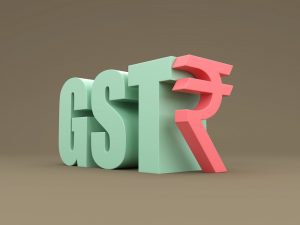 As India’s digital economy expands rapidly, tax authorities are intensifying efforts to bring global digital service providers into the Goods and Services Tax (GST) fold.
As India’s digital economy expands rapidly, tax authorities are intensifying efforts to bring global digital service providers into the Goods and Services Tax (GST) fold.
Despite widening the definition of Online Information Database Access and Retrieval (OIDAR) services in October 2023, the Directorate General of GST Intelligence (DGGI) has identified several foreign platforms that continue to operate in India without registration, thereby avoiding tax obligations on revenue generated from Indian users.
Officials aware of the matter told CNBC-TV18 that the DGGI has launched a series of enforcement steps aimed at ensuring overseas digital firms comply with Indian tax rules. These include nudging major Indian businesses—which either use these platforms or help generate revenue for them—to share details and prompt the foreign companies to register under GST laws.
“There’s a clear push to tighten compliance and bring more digital players into the tax net,” one official said. “We’ve begun sending emails and warnings, not only to the platforms themselves but also to their Indian partners.”
The scope of this scrutiny is broad. According to sources, the sectors under review include cryptocurrency exchanges, online universities, edtech firms, cloud software companies, content platforms, AI tools, design services, online advertising, digital content suppliers, and cloud storage services.
The DGGI is also ramping up pressure on Indian payment processors like Pine Labs, Razorpay and Cashfree to block payments to foreign companies that are not GST-registered. Tax authorities have begun sourcing transaction data from banks and the Reserve Bank of India, and are exploring information-sharing agreements with foreign governments to tighten enforcement across borders.
Officials also confirmed that the DGGI has requested legislative powers to block websites of non-compliant entities, although current GST law does not allow such action.
The GST collected from OIDAR services has risen sharply—from ₹80 crore in 2017-18 to ₹2,675 crore in 2023-24. Experts attribute much of this growth to the October 2023 changes, which eliminated clauses that previously narrowed the tax base. These included references to “minimal human intervention” and service usage “for any purpose other than commerce or industry”, which had allowed some platforms to avoid classification under OIDAR.
Source: CNBC TV-18


